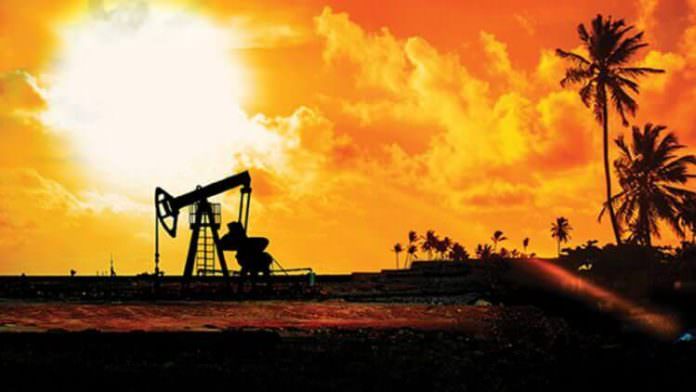
The world is changing and Texas is changing with it. Social contracts, corporate citizenship and sustainability are common terms in today’s energy boardroom discussions. These are no longer buzzwords; they are principles that help shape the regulatory framework in our State. One readily hears the echo of the social contract theory in Texas today as energy businesses both small and large. These businesses adhere to practices that enhance the quality of life in the communities in which they operate ultimately affecting the world as a whole.
It is a social and regulatory contract of corporate citizenship that requires oil companies to be good neighbors as well as environmental stewards while they pursue profit during oil and gas extraction.
“When we go into a new country for our major Upstream projects, we conduct research and engage with local stakeholders including government, communities and local experts to develop a thorough understanding of current conditions from a safety, social and environmental perspective.” Suzanne McCarron, Vice President of Public and Government Affairs, ExxonMobil
Social contract theory is a historical philosophy that originated during the Age of Enlightenment and acknowledges an individual’s or corporations ethical and political obligations to operate in society. In modern-day Texas, these obligations are frequently written in the form of laws or regulations which can be monitored and reported to ensure transparency.
“Sustainability is at the core of Marathon Oil’s business strategy. As we pursued profitable and sustainable growth in 2017, we remained committed to responsible, safe and ethical operations. We focused on meeting our obligations to key stakeholders, including addressing workplace safety, protecting the environment, making a difference in our communities and delivering returns to shareholders.” Lee Tillman, CEO, Marathon Oil
Let’s review the history of some of the most important statues and regulations embraced by the Texas Legislature, implemented by the Texas regulators, and adhered to by our oil and gas industry, all designed to make our world a better place.
Oil Field Cleanup Fund: SB 1103 – Sept. 1, 1991
The modern era of industry social contract with communities and landowners began in 1991 with the passage of Texas SB 1103 by the 72nd Texas Legislature. This legislation formed the “safety net” of the Oil Field Cleanup Fund, paid for by the oil and gas industry using specially imposed fees to plug orphaned wells, clean up abandoned pollution sites, and remove the oil and gas environmental footprints that may be an impediment to land reuse.The Oil Field Cleanup Fund was replaced by the Oil and Gas Regulation and Cleanup Fund (OGRC) by the 82nd Texas Legislature.
What does this mean: First, never has an innocent landowner who did not cause or contribute to oil field pollution been required cleanup oil field pollution or plug wells on their property to get rid of them. Secondly, the Railroad Commission of Texas (RRC) manages these funds that originated from industry to hire the contractors, oversee the plugging or cleanup, and then send the bill to the Texas Attorney General who pursues reimbursement in civil court. To date, more than 36,000 orphaned wells have been plugged at a cost of $272 million and approximately 4,000 abandoned sites cleaned up by the Agency, funded by fees on the industry, not General Revenue which comes from the common taxpayer.
While the vast majority of the million or more wells drilled in Texas are plugged by operators as required by law, with a total of 10,325 industry-plugged wells in Fiscal Year (FY) 2017, the State managed program to eliminate the accumulated 100-plus years of abandoned wells will continue with the RRC approving a budget that will plug over 3,000 orphaned wells during FY 2018-19. Additionally, Commissioners approved the RRC’s site remediation section’s plan to complete 259 cleanup activities at abandoned oil field sites in FY 18 using approximately $9 million from the OGRC.
Statewide Rule 22: Sept. 1, 1991
“Protection of Birds,” was adopted to require operators to screen, net, cover or otherwise render harmless open-top tanks and pits that are likely to collect oil. An amendment effective Nov. 1, 1991 restricted the requirement to open-top tanks eight feet or more in diameter.
Pollution Violators Prohibited from Oil Field Operations: SB 639 – 1997
The 75th Texas Legislature passed a statute prohibiting the RRC from issuing a drilling permit, an organization report, or a certificate of compliance in the event an organization has an outstanding violation that became final with the past five years of a provision of this title or an RRC rule, order, license, permit or certificate that relates to safety or other prevention or control of pollution. This effectively makes a pollution violator that has not followed a Commission Order unable to conduct business in Texas oilfields.
Voluntary Cleanup Program (VCP): Chapter 91, Subchapter D of the Texas Natural Resource Code, further described in 16 TAC §4.401- 4.450 – 2003
The Voluntary Cleanup Program (RRC-VCP) provides an incentive to remediate oil and gas-related pollution by participants as long as they did not cause or contribute to the contamination. Applicants to the program receive a release of liability to the State in exchange for a successful cleanup. The RRC’s success in managing this program led to several regulatory innovations. An Operator Cleanup Program was formed, where operators can work under the observation of the RRC, submit all data and analysis for review, and receive a notice when completion has been finished. The mentioned voluntary cleanup program was placed in statute, and a Brownfields program using federal money to leverage state contribution was put in place.
Transition to “universal bonding” completed: HB 380 – 2005
79th Legislature authorizes the Commission to accept well-specific plugging insurance policies as an alternative form of financial assurance.
Protection of Pipelines: Sept. 1, 2007
The Commission adopts rules in June 2007 for the protection of pipelines from third-party damage activities and provides penalty provisions for violations of the rule. The new rules in Chapter 18: Underground Pipeline Damage Prevention became effective.
Financial Security for Oil and Gas Operators: HB 2259 – 2009
The Texas Legislature, supported by the oil and gas industry, in its collective wisdom, recognized that prevention is just as important as cleanup. In 2010, a bill was passed that implemented strict requirements for operators to manage their assets as they aged so no well would be orphaned. These rules, admittedly complex, require an operator to plug substantial numbers of inactive wells in order to operate an oil and gas business in Texas. Bonding is also required. And operators that violate this regulation are no longer allowed to operate their oil business in Texas.
RULE §3.15 Removal of equipment, turn-off of electricity – Sept. 13, 2010
Requires the industry to remove surface equipment for land wells that have been inactive for more than 10 years. Also, it requires turning off power to an inactive lease to help remove fire hazards.
Hydraulic Fracturing Disclosure Rule – Feb. 1, 2012
On Feb. 1, 2012, the Railroad Commission of Texas implemented the Hydraulic Fracturing Disclosure Rule (Statewide Rule 29, Texas Administrative Code, Title 16, Part 1, §3.29), one of the nation’s most comprehensive rules for disclosure of chemical ingredients used in hydraulic fracturing fluids. The rule requires Texas oil and gas operators to disclose on the FracFocus website (fracfocus.org), chemical ingredients and water volumes used in hydraulic fracturing treatments. FracFocus is a public internet chemical registry hosted by the Ground Water Protection Council (GWPC) and the Interstate Oil and Gas Compact Commission (IOGCC). The GWPC is a national association of state ground water and underground injection control agencies. The IOGCC is a national commission of state oil and gas regulators.
HB 40 – 2015
The 84th Texas Legislature in 2015 authorized local jurisdictions (cities) the right to regulate surface activities in a manner that is commercially reasonable. It established the State’s jurisdiction over oil and gas regulations and below-surface activities.
TexNet Seismic Monitoring Program – 2015 and 2017
During the 84th and 85th legislative sessions in 2015 and 2017, the Texas Legislature tasked the Texas Bureau of Economic Geology with helping to locate and determine the origins of earthquakes in our state and, where possibly caused by human activity, help to prevent earthquakes from occurring in the future. The TexNet Seismic Monitoring Program was established to accomplish these goals.
“The company believes this organizational approach, where employees live and work in the same communities where it has operations, provides a positive and direct benefit for local communities. Employees and contractors directly support regional economies by purchasing local goods and services and paying local taxes. EOG employees also take pride in making a positive difference in the lives of those around them and in their own communities.” EOG Resources
The path Texas companies now follow is one with decades of history, demonstrated accountability, corporate leadership, solid legislation and regulatory environmental protection. Adherence to our energy social contract is alive and well, helping our friends, neighbors and fellow countrymen. It is not new; it is not a fresh start. It is a continuum that Texas oil and gas leaders follow — proudly and sincerely.
About the author: John Tintera, Executive Vice President of the Texas Alliance of Energy Producers, is a regulatory expert and licensed geologist (Texas #325) with a thorough knowledge of virtually all facets of upstream oil and gas exploration, production and transportation, including conventional and unconventional reservoirs. As a former Executive Director and 22-year veteran of the Railroad Commission of Texas (considered the premier oilfield regulator in the nation), Tintera oversaw the entire regulatory process, including drilling permits, compliance inspections, oil spill response, pollution remediation and pipeline transportation.
konephoto/bigstock.com














